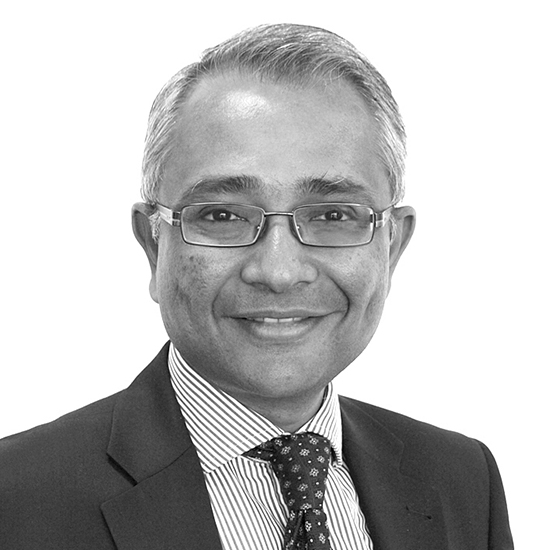Safeguarding society with cutting-edge tech
When Kromek was spun out of Durham University’s physics department in 2003 it had already developed a technique of creating semiconductor material used for radiation detectors and gamma ray detectors. Though problematic to make, says CEO Arnab Basu, the technology provided a colour equivalence in the world of monochrome x-rays.
After years of capital-intensive research and development, Kromek’s work is changing the way we live. Its medical imaging can detect cancers and dementia early and monitor progression of diseases such as osteoporosis.
In airport security, its technology ensures passengers keep flowing by effectively screening baggage.
And Kromek works with governments and armed forces to detect and prevent dirty bombs, and large energy companies to prevent nuclear accidents.
“Our model provides detection sub-systems to original equipment manufacturers (OEMs), which transform the capability of those machines,” says Basu. “We provide very high-quality imagery, ultimately enabling our customer base to work more efficiently and reduce costs.”
You can have the best technology, but if you don’t have the right people to execute, you don’t have anything.
Arnab Basu, Kromek
Human capital drives the business
Kromek’s intellectual capital is backed by over 270 patents created by its international team of specialists. Split equally across its UK and US facilities, the team drives the company’s innovation.
“Human capital is an essential element of whatever you do,” explains Basu. “You can have the best technology, but if you don’t have the right people to execute, you don’t have anything.”
Basu, who is an Innovate UK member, says: “If you have the right human capital in house, you look after your customer base and are solving your customers’ most urgent problems, this is how success is measured.”
Patient capital fuels scalability
Without access to a strong patient capital base “you’re unable to scale”, says Basu. Kromek has come a long way on its financial capital journey. It has benefitted from the Enterprise Investment Scheme, and working personally with 90 investors before becoming a public company.
The company listed on the Alternative Investment Market of the London Stock Exchange in 2013, raising further capital in a secondary offering.
“It’s great to see that patient capital is being discussed more widely now and great to see in the government’s Spring Statement some of the steps that the government is taking,” he says.
However, Basu believes that value-added investors are still rare. “You have to find an investor who believes in the real scalability of your business,” he says.
“In the UK, patient capital is not that easy to access,” says Basu. “Although becoming better, supporting a 10-15-year vision is still an arduous journey for many investors.”
Capitalised for growth
Basu and his team have spent 15 years building the business in preparation for scaling its technology. “The next five years will be all about growth,” he says. “We can be a truly global business of scale.”
Kromek’s high-performing technologies are used across the globe in various walks of life. The detectors are used to protect the President of the US, they were used in a first response to the Fukushima disaster in March 2011 and every day at power company EDF.
“These are just the green shoots and the scalability of this business is huge,” he says.
“We’re focused on enabling saving lives and improving safety, but ultimately it’s about bringing down the cost of operations for our customers,” says Basu.

